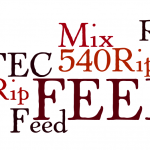After listening to the CBC Ideas episode, “The Great Library 2.0” I was encouraged to reflect back upon the 2002 article “Democracy and Education: The Missing Link May Be Ours” by John Willinsky. Although the Ideas episode focuses on the Google Books project and its implications for accessing and storing text digitally, I find the subject matter lends itself to discussion regarding open access to educational resources in general.
In Democracy and Education: The Missing Link May Be Ours, John Willinsky (2002) argues that a paradigm shift regarding the publishing of scholarly works that leverage information technologies is needed. He argues for free and open access to scholarly research, stating that under the current system, publishers control most academic and scientific research publications. Although the argument touches on the financial aspect of publishers making extensive profits from publications, instead, like most proponents of the open access movement, his main argument is based on the fact that open access to educational resources is for the good of society. This aligns with a report published by the UK Wellcome Trust in April, 2004, which assumes that “the benefits of research are derived principally from access to research results”, and therefore that “society as a whole is made worse off if access to scientific research results is restricted”.
Critics of the academic publishing industry today argue that the high subscription fees charged to university libraries, decreased funding and the proposition that researchers are unable to access their own published works without a subscription (Stevenson, 2010) are reasons enough to move towards an open access system. Willinsky believes that it is only through open access that Dewey’s democratic theory of education can be achieved. By using information technology to improve public access to education research, researchers can expand education’s role within democracy, encouraging an alternate perspective to the media’s coverage of educational issues.
Opponents of open access resources use the argument of prestige. If publishing in an open access database does not carry as much prestige as publishing in reputable print journals, many researchers will still choose the route of the traditional system of publishing. Willinsky (2002) recognizes this problem exists and states that any new method of publishing will need to be “sensitive to the career aspirations of contributors” (p. 13). There is also the argument that moving to a system of open access resources is not financially sustainable for academic institutions. There is a lack of enthusiasm from academic publishing houses, too deeply entrenched in current publishing models, to remodel their business to a system that has yet to prove financially sustainable (Allington, D., 2013).
According to UK journalist, George Monbiot (2011), when discussing accessibility of resources, says “without current knowledge, we cannot make coherent democratic decisions. But the publishers have slapped a padlock and a ‘keep out’ sign on the gates.” Willinsky’s desire for academic authors to take up the challenge and participate in this democratic experiment by thinking of their work as a means to expand global opportunities for edification and deliberation through open access is still in its stages of infancy. There exists a large number of academics working within a system entrenched in tradition who still need to be convinced.
As a proponent of democratic freedom and information sharing, I am encouraged that the movement for open educational resources exists. However, to realize Willinsky’s vision, there is still a long road ahead.
References:
Allington, D. (2013, October 15). On open access, and why it’s not the answer. [Blog post]. Retrieved from http://www.danielallington.net/2013/10/open-access-why-not-answer/#sthash.7Y52600T.NiU3jDQ7.dpbs
Anderson, K. (2013, November 5). Not the answer – an academic carefully assesses the arguments for open access. The Scholarly Kitchen. Retrieved from https://scholarlykitchen.sspnet.org/2013/11/05/not-the-answer-an-academic-carefully-assesses-the-arguments-for-open-access/
Kennedy, Paul. “The great library – 2.0.” Prod. Sean Prpick. CBC: IDEAS. 28 Feb. 2011. CBC Radio Broadcast. https://canvas.ubc.ca/courses/4290/pages/forking-path-link-to-digital-age?module_item_id=202524
Monbiot, George (2011, August 29). Academic publishers make Murdoch look like a socialist: academic publishers charge vast fees to access research paid for by us. Down with the knowledge monopoly racketeers’. Guardian. Retrieved from http://www.theguardian.com/commentisfree/2011/aug/29/academic-publishers-murdoch-socialist
Wellcome Trust. (2004). Costs and business models in scientific research publishing. Retrieved from https://wellcome.ac.uk/sites/default/files/wtd003184_0.pdf
Willinsky, J. (2002). Democracy and education: The missing link may be ours. Harvard Educational Review, 72(3), 1-21. Retrieved from: http://knowledgepublic.pbworks.com/f/WillinskyHER.pdf




michael yates
May 31, 2018 — 12:08 am
Reading some of the arguments you brought up against the public knowledge project is quite disheartening. I especially detested the “prestige” argument and to be perfectly honest think this attitude is what has stopped academic research from actually helping the masses (and being consumed by them). This attitude held by some in academia has created a divide between the educational “elite” and the “rest”. As a result Democracy and Education: The Missing Link May Be Ours has likely been read by fewer people in the last 20 years then say Kim Kardashians last “tweet” in 20 hours.
I have to agree with you, for the Public Knowledge Project to actually gain steam will be a LONG road that may never actually get to a destination (but that doesn’t mean I am not encouraged, like yourself, by its existence).
EdPawliw
June 3, 2018 — 5:24 pm
Isn’t it funny that elements in the academic world are closely guarding information, while technology companies, developing devices such as Raspberry Pi, PicAxe, and Arduino embedded technologies have open source files so anyone can clone, alter, or improve these products and make the technology and accompanying information available globally? I think the big difference is in the mindset (and pocketbook) of these groups. This illustrates the argument between individualism (capitalism) versus a distributed cognitive network (open source) at its finest.
Elon Musk, in his Tesla blog, announced that all of the patents the company held for electric vehicles will be removed to advance the technology. Here, the thinking is that the ability of many minds attacking a problem is seen as a way of outsourcing for problem solution. Wouldn’t academia also benefit from freer sharing of information?
We saw that publishers had a role to play as a gatekeeper of sorts, sorting the wheat from the chaff (Engell & O’Donnell. 1999). But let’s not kid ourselves, there is a capitalist glint in every publishers’ eye and rightly so. They like to eat too, but is it more of a parasitic existence than a noble cause that drives them? The academic community has come up with a system of referencing and peer review that has served very well in ensuring academic rigor. Maybe it is becoming more incumbent on the individual to do their own due diligence now in vetting sources, with this being the price we have to pay for open access to information.
Reference:
“All Our Patent Are Belong To You.” Tesla, Inc, 19 Aug. 2014, http://www.tesla.com/en_CA/blog/all-our-patent-are-belong-you.
Willinsky, John. “Democracy and Education: The Missing Link May Be Ours.” Harvard Educational Review, vol. 72, no. 3, 2002, pp. 367–392., doi:10.17763/haer.72.3.0nj018h638677r24.
Engell, J. (Presenter) & O’Donnell, J. (Presenter). (1999). From Papyrus to Cyberspace [radio broadcast]. Retrieved from https://canvas.ubc.ca/courses/4290/files/609973/preview
Links to embedded technology sites:
Arduino: https://www.arduino.cc/
PicAxe: http://www.picaxe.com/
Raspberry Pi: https://www.raspberrypi.org/
kimseto
June 3, 2018 — 11:27 pm
Great post! I really appreciate how you made the connection between the CBC Ideas podcast on digitization and online accessibility of books with the resistance to open access from publishers. It is indeed be infuriating knowing that the academic publishing industry has been unwilling to move with the revolution of the world’s information. Today, everything from recipes to maps to books to news are within reach to anyone who has access to the Internet. Music and videos are increasingly made available through legal ad-supported streaming services, like Spotify and SoundCloud. New platforms documenting collaborative knowledge like Wikipedia have flourished. Nearly every form of data has been reinvented in this online era! So, why is it that even 20 years after the start of the modern web, academia remains steadfastly locked into their archaic business model?
Resisting the transition to open access has led to a pirating crisis, similar to the illegal downloading of videos and music. Sci-Hub is an enormously popular, online repository of pirated research papers and is accessed by people in both rich and poor countries. Even students who have access to their university’s journal subscriptions utilize this illegal site. Reasons range from simply having difficulty navigating cumbersome web portals on their university libraries to universities facing limited journals due to international sanctions (Bohannon, 2016). Is the World Wide Web not meant to bridge knowledge gaps, to pull people out of socioeconomic despair and to establish a level playing field? The exorbitant costs to access knowledge only means that privileged elites continue to have the upper hand. Sure sites like Sci-Hub are illegal, but I personally do not believe that anyone should feel guilty accessing such them if it is benefit our society.
Bohannon, J. (2016, April 28). Who’s downloading pirated papers? Everyone. Retrieved from http://www.sciencemag.org/news/2016/04/whos-downloading-pirated-papers-everyone